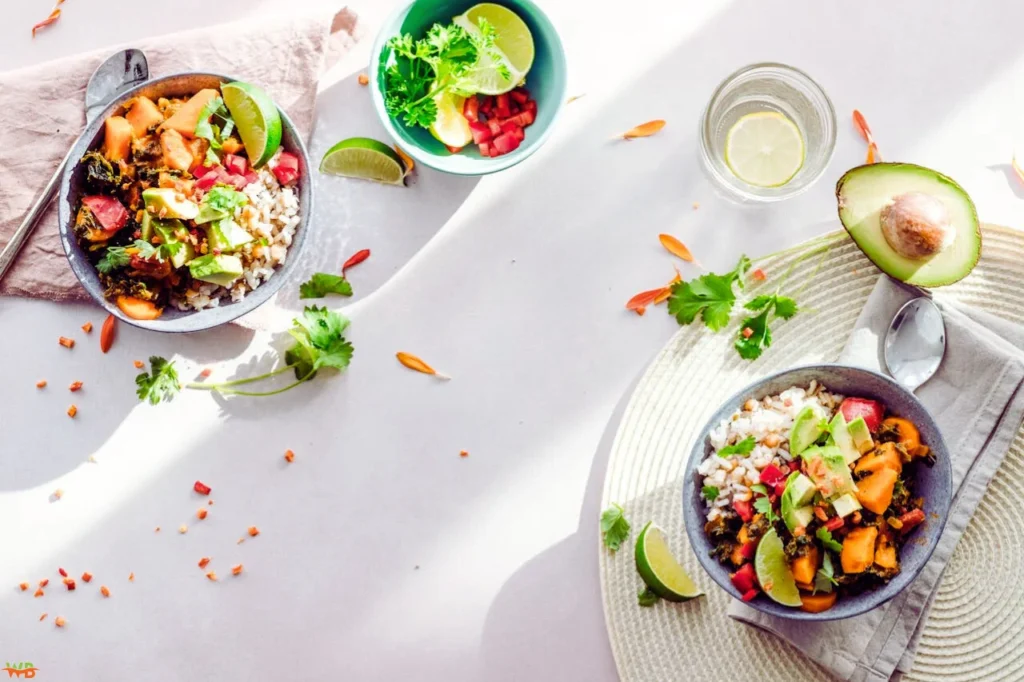
Maintaining healthy eyesight is crucial for our overall well-being, and one of the key factors that can significantly impact our eye health is our diet. Just as a balanced diet is essential for our body’s health, it also plays a critical role in preserving our vision. In this article, we will delve into how diet can affect healthy eyesight and what foods are beneficial or harmful to our eyes.
Healthy Eyesight: The Impact of Diet and Nutrition
Our diet is a reflection of our overall health, and it directly affects our eyes. A diet rich in unhealthy fats and processed foods can have adverse effects on your vision, making it harder to maintain healthy eyesight over time. Excessive intake of refined sugars and simple carbs, including white bread and pasta, can have a negative effect on our vision. These foods can cause blood sugar levels to spike, which is linked to a higher risk of age-related macular degeneration.
Foods That Harm Eye Health
Certain foods can be particularly detrimental to our eye health. These include:
- High-fat foods: Foods high in saturated fats, such as greasy or fried foods, can cause plaque to build up in blood vessels, leading to poor blood circulation. This can damage the optic nerve and retina, causing vision problems and making it difficult to maintain healthy eyesight over the long term.
- High-sodium foods: Excessive sodium intake can lead to hypertensive retinopathy, choroidopathy, and neuropathy, all of which can cause vision loss.
- Diet sodas and sugary drinks: Consuming diet sodas and sugary drinks can increase the risk of diabetic retinopathy and other eye conditions.
- Refined carbohydrates: Foods like white rice and flour lack vital micronutrients and can increase the risk of eye diseases.
Foods That Promote Healthy Eyesight

On the other hand, certain foods can help protect and improve healthy eyesight. These include:
- Leafy greens: Incorporating leafy greens like kale, spinach, and collard greens into your diet can provide lutein and zeaxanthin, antioxidants that help safeguard your eyes from UV harm.
- Oily fish: Foods rich in omega-3 fatty acids, such as salmon and sardines, can help prevent age-related macular degeneration.
- Citrus fruits and berries: These foods are loaded with vitamin C, which can promote healthy eyesight and slow the development of cataracts and macular degeneration.
- Sweet potatoes: These are an excellent source of vitamin A, which protects against dry eyes, night blindness, and eye infections.
Staying Hydrated for Healthy Eyesight
Adequate hydration is also essential for maintaining healthy eyesight. Drinking enough water helps to soothe dry and itchy eyes by supporting natural hydration. To support eye health, it’s important to drink enough water daily to prevent dryness and irritation.
For those who wear contact lenses, such as those available from https://www.contactlenses4us.com/, maintaining a healthy diet and staying hydrated can help prevent eye irritation and ensure comfortable wear.
Smart dietary choices and proper hydration play a vital role in maintaining healthy eyesight, safeguarding our vision, and minimizing the risk of eye conditions. Regular comprehensive eye exams can also help assess our eye health and diagnose underlying health conditions.
FAQs About Healthy Eyesight
1- Can lifestyle habits affect my eyesight?
Yes, lifestyle habits can have a significant impact on your healthy eyesight. Smoking, excessive screen time, and lack of sleep can all contribute to eye problems such as dry eyes and blurred vision, and even increase the risk of more serious conditions like cataracts or macular degeneration. Making positive changes, such as quitting smoking, reducing screen time, and ensuring you get enough sleep, can help preserve your healthy eyesight and overall eye health.
2- Are there specific vitamins that help improve vision?
Yes, certain vitamins and minerals are essential for maintaining healthy eyesight. Vitamin A is crucial for good night vision and preventing dry eyes, both of which are foundational to healthy eyesight. Vitamin C and E act as antioxidants, protecting the eyes from damage caused by free radicals, while zinc plays a key role in maintaining the retina’s health. Including foods like carrots, citrus fruits, leafy greens, and nuts in your diet can help support these vital nutrients for your eyes and ensure long-term healthy eyesight.
3- How can I protect my eyes from digital screen strain?
The extensive use of digital screens has made eye strain a common problem for many people today. The 20-20-20 strategy helps alleviate digital eye strain—every 20 minutes, give your eyes a 20-second break and focus on an object 20 feet away. Additionally, adjust the brightness of your screen to match the lighting around you, use blue light-blocking glasses or screen filters, and ensure your work area is well-lit to prevent glare. These simple changes can help alleviate discomfort and reduce long-term strain.
4- Can stress affect my eyesight?
Yes, prolonged or chronic stress can impact your healthy eyesight in various ways. Stress can cause temporary blurry vision, eye fatigue, and even dry eyes. It may also contribute to more serious eye conditions by increasing intraocular pressure, which can lead to glaucoma. Managing stress through regular relaxation techniques like meditation, yoga, or breathing exercises can help protect your vision and improve your overall health.
5- Is it possible to reverse vision damage through diet?
Although eating the right foods can support healthy eyesight and slow the onset of eye diseases, it can’t undo any damage that’s already been done to your vision. For example, nutrients like omega-3 fatty acids, lutein, and zeaxanthin can help prevent further damage in conditions like macular degeneration, but they cannot restore lost vision. However, adopting a nutrient-rich diet can be a crucial part of maintaining eye health and preventing future issues.

